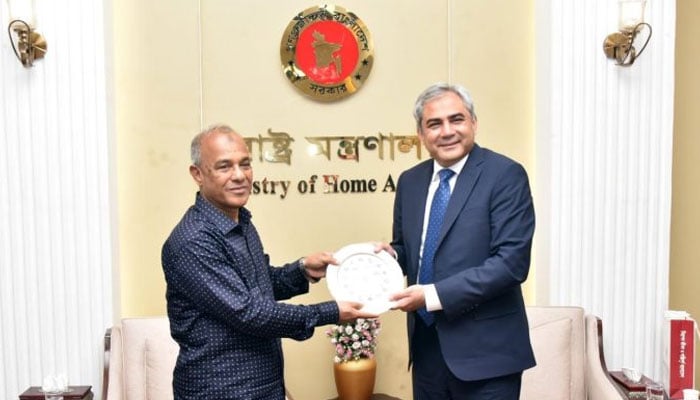ISLAMABAD: In a significant move to strengthen bilateral ties, Pakistan and Bangladesh have reached an in-principle agreement to allow visa-free entry for holders of diplomatic and official passports. The breakthrough came during a high-level meeting between Pakistan’s Interior Minister Mohsin Naqvi and Bangladesh’s Home Minister Lt. Gen. (retd) Jahangir Alam Chowdhury in Dhaka.
The two ministers discussed enhanced cooperation in internal security, counter-terrorism, and law enforcement, with a particular focus on combating drug trafficking and human smuggling. They also agreed to exchange police training programs to improve professional expertise. A joint committee, led by Pakistan’s Federal Interior Secretary Khurram Agha, will oversee the implementation of these initiatives.
Warming Relations After Years of Strain
The meeting marks a notable step in rebuilding trust between the two nations, which have had a complex diplomatic history since Bangladesh’s independence in 1971. Both sides emphasized the importance of people-to-people exchanges and institutional collaboration. A Bangladeshi delegation is expected to visit Islamabad soon to study Pakistan’s Safe City Project and the National Police Academy.
This development follows April’s Foreign Secretary-level talks, where the two countries welcomed the resumption of direct shipping between Karachi and Chittagong and discussed restarting direct flights. The latest agreement signals a broader push to ease travel restrictions and deepen diplomatic engagement.
A New Chapter in Bilateral Ties?
Analysts see the visa-free arrangement as a confidence-building measure that could pave the way for broader economic and political cooperation. With both nations facing regional security challenges, closer coordination on counter-terrorism and law enforcement could prove mutually beneficial.
As Pakistan and Bangladesh gradually mend relations, the focus now shifts to sustained engagement—whether through trade, security collaboration, or cultural exchanges. If momentum continues, this thaw could redefine South Asia’s diplomatic landscape in the years ahead.














